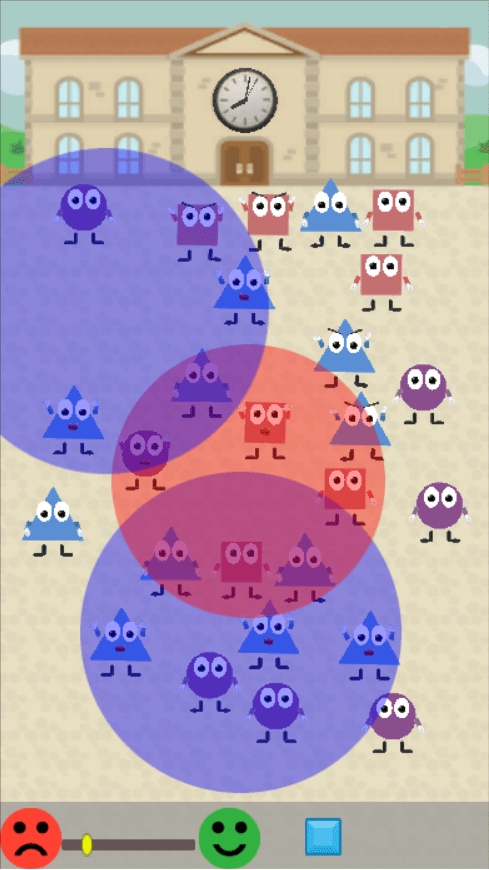
Featured Blog | This community-written post highlights the best of what the game industry has to offer. Read more like it on the Game Developer Blogs.
Games 4[Diversity] Jam - A critical review
A critical review of the Games 4[Diversity] Jam. Aiming to improve jams with a purpose.

Recently, I was in the fortunate position to take part in another successful Games 4[Diversity] Jam. I call it successful due to my experience as a participant. I had a good time with friends and fellow developers. Yet, I do think it is important to also critically look at what this jam, and jams like it, achieve. Are they successful in their purpose, and do they reach the intended goals?

To further explore this question we first need to define what Games 4[Diversity] is, and what their goals as an organization are. Games 4[Diversity] hosts a yearly non-profit game jam that aims to explore diversity topics in relation to games. In the past, topics such as LGBTQ & Feminine perspectives in 2014, and Ethnic Backgrounds in 2015, were covered. The resulting games from these jams were then showcased at conventions by the organizers of the event. We can argue that next to “fun and games”, the actual purpose of these jams is to provoke a discussion. Primarily on topics that are difficult to tackle and have a large influence on society. These topics are both relevant as discussions for the developers during the jam, as well as a theme for the jam games that are being made. These creations then serve a further purpose of being shown to a larger audience to again provoke a discussion.
This year’s topic was religion. More specifically; how religion and personal views are represented as game mechanics, and narrative devices. This theme immediately sparked a group discussion. Participants openly shared their personal views and experiences. The general consensus of the group came down to a few observations:
Religion is often used as a resource that has little to do with actual religion or spirituality;
Religious in-game representation of symbols and characters are often portrayed in a stereotypical manner;
Players are often in the role of a “god”, either as a character in a game, or as a mode of interacting with the game system;
Outcomes
Fast forward roughly two days of hectic jamming and we can review the results. Three games were made:
A board game RPG focused on community structures in which players are assigned to a role within a fictional community. Players have to deal with events that either push players towards a tightly connected community, or cause frictions that can lead to the loss of members, potentially dissolving the community entirely.

A mobile game, where the player is presented with a playing-field of potential followers. The goal is to cover as many people with the “correct” religion as possible in order to score points.
A branching narrative game in the form of a choose-your-own-adventure. In this game, players take on the role of a priest that guides members of their community in their moral dilemmas. The outcomes of those dilemmas, are what shape the moral values of that particular community.

Interestingly, none of the developed games tackled current world problems in any direct way. Nor did they challenge the initially discussed observations of stereotypical portrayal of religion and its symbols in the game industry. Furthermore, two out of three games were aiming at morality more so than faith or religion. It can even be argued that in all developed games, religion itself as a theme can be replaced, or even entirely removed. And when removed, these games would lose little to none of their intended experience.
I will gladly argue that the jam itself was a fun and interesting experience. Yet, I do believe that certain factors played a large role in how the mentioned above games were developed. Some observations that can be made are related to the sample of participants, the location, as well as the general reluctance to challenge common views on the topic.
Participants were not diverse enough
There was a vast majority of Caucasian cis-gender males. Mostly atheist but with Christian values, upbringing, and socio-cultural background. Furthermore, the group had only two women, and only three different nationalities. This begs the question if the developed games would have turned out different had there been a more diverse group of developers.
Jam location
The jam was hosted in the Dominican monastery in Zwolle. And although this location did serve as a great source for inspiration, there is an inevitable downside to being a guest in such a location. In my personal experience, and also within my team, we often mentioned ideologies and controversies. But, we never really considered adding them to the game concept. I think this is largely due to the feeling of not wanting to intentionally insult our hosts with a game concept that would question their beliefs. In comparison; this year’s Global Game Jam topic of “rituals” resulted in many games that featured pentagrams, and other loaded icons, while also covering topics that would not be fitting to be presented in a church.
Reluctance to challenge
Jams such as these, tend to be promoted through channels of supporters of diversity topics. Due to this, they attract developers with a particular mindset. Thus they have a tendency to “preach to the choir”. Similarly, the games that are developed, are then mostly played by people that already agree with that view. Although this creates a friendly and nice subculture of pro-diversity, it in some ways fails to reach the true intended audience. An audience where the discussion still matters, and perspectives may still change. As seen during this jam, none of the participants pushed an opposing view, which is a shame if the goal is to stir up discussions.
In Conclusion
Overall, I believe that these types of jams are effective at their intended goals, but fall short in reaching their full potential. Issues with the methods for recruitment of participants as well as a overly safe environment are part of what I think is holding back this type of jam. Yet, I can personally recommend attending Games 4[Diversity] if you have the opportunity to do so. But, in particular, I would like to challenge developers and game enthusiasts that do not share the same views to join. In the end, the discussion of the yearly topic is what matters. And only if we fully dive into these topics from all angles can we reach a deeper understanding of all views. By broadening the kind of people that participate, we will inevitably make better, smarter, and more inclusive games.
I’ll leave you with a final question to start the discussion: How would you implement religion in your current projects?
Read more about:
Featured BlogsAbout the Author(s)
You May Also Like









